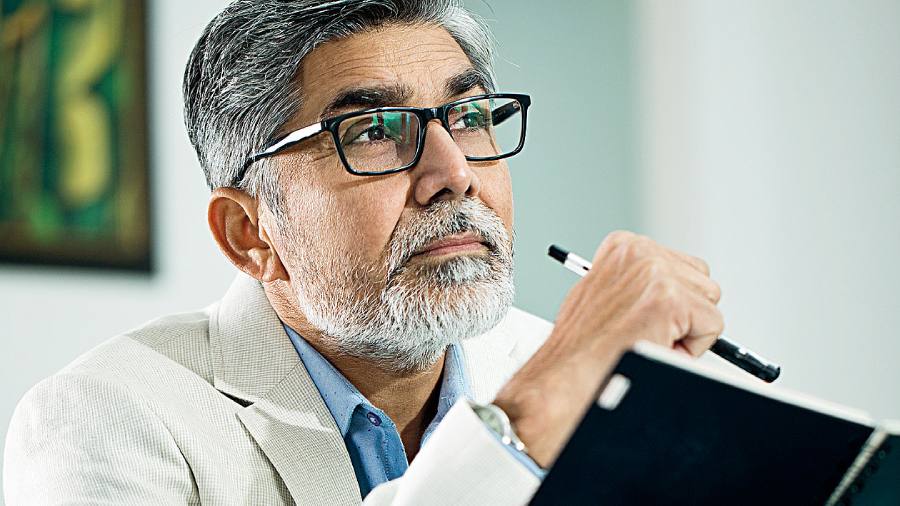At the end of a difficult day, or when we’re going through a challenging time, sometimes all we want is a kind, patient person to share our feelings. Someone who will not just hear, but truly listen to us. Someone who will not judge us. Someone who can empathise without bias.
While our favourite family members or best friends are the people we vent to, sometimes what we need is a person who doesn’t know us at all and hears what we have to say for the first time. Just the act of summarising our life, recounting our feelings to a new person can itself give us a lot of clarity. One of the best and possibly only Bollywood movies to focus on counselling was Dear Zindagi.
An important reality check it brings up is this: “Kabhi kabhi hum mushkil rasta sirf is liye chunte hai kyun ki humein lagta hai important cheezein paane ke liye humein mushkil rasta apnana chahiye. Apne aap ko punish karna bahut zaroori samajhte hai. But why? Aasaan rasta kyun nahi chun sakte?”
Did you know?
- One in every eight people in the world lives with a mental disorder (WHO).
- Depression, anxiety and behavioural disorders are among the leading causes of illness and disability among adolescents (WHO).
- Suicide is the fourth leading cause of death among 15-29 year-olds (WHO).
- Only 41 per cent of the 15-24 years age group in India said it is good to get support for mental health problems.
What exactly is counselling?
To put it very simply, counselling is a process of talk therapy where any individual, couple, or family meet with a trained and certified mental health professional to share their issues and work on developing coping tools with the guidance of their counsellor.
What counselling offers:
- A safe, 100 per cent confidential, unbiased, non-judgmental, empathetic environment to talk about your issues/challenges.
- Clear guidance from mental health experts to empower you to take action.
- Practical tools and tips to make positive changes in your life.
What counselling doesn’t offer:
- Magical or miraculous cures.
- Instant fixes in one session.
- Overnight feelings of happiness.
Who can avail counselling?
“Safe feel karne ke liye pehle saare dar mitana zaroori hai!”
Anyone and everyone can go for counselling. A counsellor can help:
- Individuals across all ages, genders, relationship status, socio-economic backgrounds.
- Children/teens: Those struggling academically or socially in school, or with behavioural issues at home.
- An adult dealing with challenging relationships, marital issues/ divorce or toxic workplaces.
- The elderly: Seniors facing post-retirement, empty nest, or grief issues.
- Parents: New parents, mothers with postpartum blues, couples dealing with infertility or miscarriages, or the adoption process.
- Individuals with mental health issues and disorders.
So, what can counselling help you with if you don’t have a diagnosis?
Counselling can empower you by teaching you how to:
- Beat stress,
- Manage conflict,
- Handle criticism,
- Improve relationships,
- Have difficult conversations,
- Set boundaries,
- Cope with grief/setbacks,
- Control overthinking,
- Overcome phobias,
- Assist professional growth, and
- Encourage personal growth
Counselling can especially help students with:
- Bullying, ragging, peer pressure,
- Exam stress and anxiety,
- Career planning, and
- Internet addiction.
Counselling directly cannot help:
- Very young children and
- Individuals with intellectual disabilities.
For them, play therapy is ideal.
Also, an important thing to note is that to start counselling is to start a journey of change. Counselling will only work for those who are actively committed to taking charge of their life and are open to change.

Quiz time
How will I know I need professional help?
When your emotions are overwhelming, disrupting, or derailing your regular life each day and you are unable to cope in a healthy way, it’s time to get help. Reach out to a counsellor if you notice that:
- A particular issue is affecting every aspect of your life in a negative way.
- You are unable to perform in your social, professional, personal life
- Your issue is consistent for four to six weeks.
“Agar hum apni zindagi ka steering wheel apne haath mein nahi lenge na, toh koi doosra driver seat par baith jayega.”
You can actually take this mini quiz right now to see if you could benefit from talking to a mental health professional. Ask yourself the following questions and tick those to which you answer ‘yes’:
- Are you your own worst critic, blaming yourself/judging yourself harshly for your unhappiness?
- Do you set goals, have trouble achieving them or get discouraged easily?
- Do you feel hopeless due to family/ marital/ work pressure issues?
- Do you struggle with smoking, drinking, self-harm, binge eating, compulsive shopping?
- Do you constantly feel tired, fatigued, frustrated, irritated, angry, helpless?
- Do you have aches and pains that seem to have no physical reason?
- Have you been eating/sleeping too much or too little recently?
- Have you been thinking about death or having suicidal thoughts?
If you answer ‘yes’ three or more of the above, then counselling may well be of great help.
Counselling FAQs
Will I have to take medicines to get cured?
While certain disorders like schizophrenia and bipolar disorder, or severe cases of depression, or OCD may require medication, it is not a must for all issues. Modern psychiatric medicine has come a long way. If we don’t hesitate to take medicines for blood pressure, diabetes, and heart issues, why hesitate for our brain?
What is the difference between a psychologist and a psychiatrist?
Only a psychiatrist — an MBBS doctor who has specialised in psychiatry at the MD/PG level — can prescribe medication. Psychologists have an MA or MPhil in psychology, use tests, counsel using therapy methods, but by law they cannot prescribe medication.
Can I get counselling for more than one disorder at the same time?
It is actually quite common for someone to have two different issues — this is called comorbidity — and it can get treated at the same time. For example, if you have depression and OCD, or chronic stress and anxiety, your counsellor will guide you on a tailored approach based on which one is affecting your life the most and to what degree.
How long does it take for counselling to work?
Counselling, like I’ve said before, is not like instant noodles. It takes at least four to six sessions to get an understanding of the impact it is having in your life.
Can I change my counsellor after the first or second session?
It is important for you to feel comfortable, understood, and heard. If you’re uncomfortable or feel judged or feel like you can’t relate, you can definitely change your counsellor. However, as the first two sessions are mostly exploratory and focus on history taking — which is bound to bring up uncomfortable feelings — it is ideal you wait till the end of the third session. If after this you feel frustrated, it’s okay to find a new counsellor to help you.
How should I prepare for my first counselling session?
- Be proud of yourself for taking this important self-care step. It takes courage and you are breaking the stigma surrounding mental healthcare.
- Schedule some undisturbed me-time before and after your first session. This allows you to calm down. This time also can be utilised for making notes/ journalling your therapy journey.
- Make a list of questions. To feel less nervous, write a list of questions and points you want to discuss during the first session. Do this the day before your appointment.
- Manage your expectations. Remember that this is the first of many sessions. Your therapist and you are just getting to know each other.
What questions should I ask my therapist during the first session?
Some questions you can ask are:
- What can I expect during our first session?
- How many sessions do you think I’ll need?
- How frequently do I need to meet with you?
- How long will our sessions be?
- How can I schedule/reschedule appointments?
- How can I reach you for an emergency session?
What issues should I discuss with my therapist during the first session?
The simplest answer is this — whatever is bothering you most at the moment. Other topics include:
- Challenges you are currently facing.
- Any issues you have faced for many years.
- Recent major changes in your life/habits.
- Things you have already tried to feel better.
- Any concerns your family and friends have shared about you.
Can I still get counselling if my parents/spouse doesn’t allow?
Yes, you do not need permission to get counselling, but you must sign a consent form and list an emergency contact.
Are counsellors obligated to share what I say with my parents/ spouse/ family?
Counselling sessions are 100 per cent confidential with two exceptions. If the counsellor is convinced that you may harm yourself or harm another person, then by law they are obligated to inform your emergency contact.
You matter. Your mind matters. More than ‘log kya kahenge?’
While the conversation has changed a lot over the past decade, we still have a long way to go. Even today, with 2023 right around the corner, every day I encounter people being super uncomfortable when the words ‘counsellor’, ‘counselling’, ‘psychologist’ and ‘mental health clinic’ are mentioned.
- “Arre, itni kya problem hai tumhare life mein?”
- “Paagal ho kya ke tum clinic jaogi? Kisi ne dekh liya toh?”
- “Sirf ek stranger se baat karke kuch nahi hoga. Bekaar mat jao!”
While I’ve mentioned this before, I’m happy to repeat this till each and every one of us feels empowered to seek counselling without shame, guilt, and fear of judgement — it’s high time we break the stigma of ‘log kya kahenge!’ If you can have your own go-to person or consultant for everything — nutritionists, fitness trainers, travel consultants, image consultants, financial planners, even personal assistants, why can’t you have your own counsellor to help you navigate your life and emotions.
With today’s column I hope I’ve been able to demystify counselling for a lot of you. And if you haven’t already, I’m sure many of you will soon get the help you need to fall in love with yourself and your life. If you have any questions related to learning more about counselling, please feel free to connect with me on Instagram at @psychotherpist.minu
Pictures: Shutterstock
Minu Budhia is a psychotherapist, counsellor, founder of Caring Minds, ICanFlyy, CafeICanFlyy, and a TEDx speaker. Write to her at askminubudhia@caringminds.co.in
Who should seek counselling?
Anyone and everyone can go for counselling. A counsellor can help:
- Individuals across all ages, genders, relationship status, socio-economic backgrounds
- Children/teens: Those struggling academically or socially in school, or with behavioural issues at home
- An adult dealing with challenging relationships, marital issues/ divorce or toxic workplaces
- The elderly: Seniors facing post-retirement, empty nest, or grief issues
- Parents: New parents, mothers with postpartum blues, couples dealing with infertility or miscarriages, or the adoption process
- Individuals with mental health issues and disorders
- Schedule some undisturbed me-time before and after your first session. This allows you to calm down. This time also can be utilised for making notes/ journalling your therapy journey.
- Make a list of questions. To feel less nervous, write a list of questions and points you want to discuss during the first session. Do this the day before the appointment.
